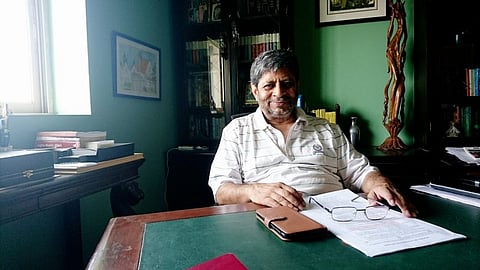
- News
- Columns
- Interviews
- Law Firms
- Apprentice Lawyer
- Legal Jobs
- हिंदी
- ಕನ್ನಡ

“I remember what a pleasant young man I was before I got into the legal profession”, reminisces Shreehari Aney, “and I know how sarcastic, bitter and pessimistic I have become.”